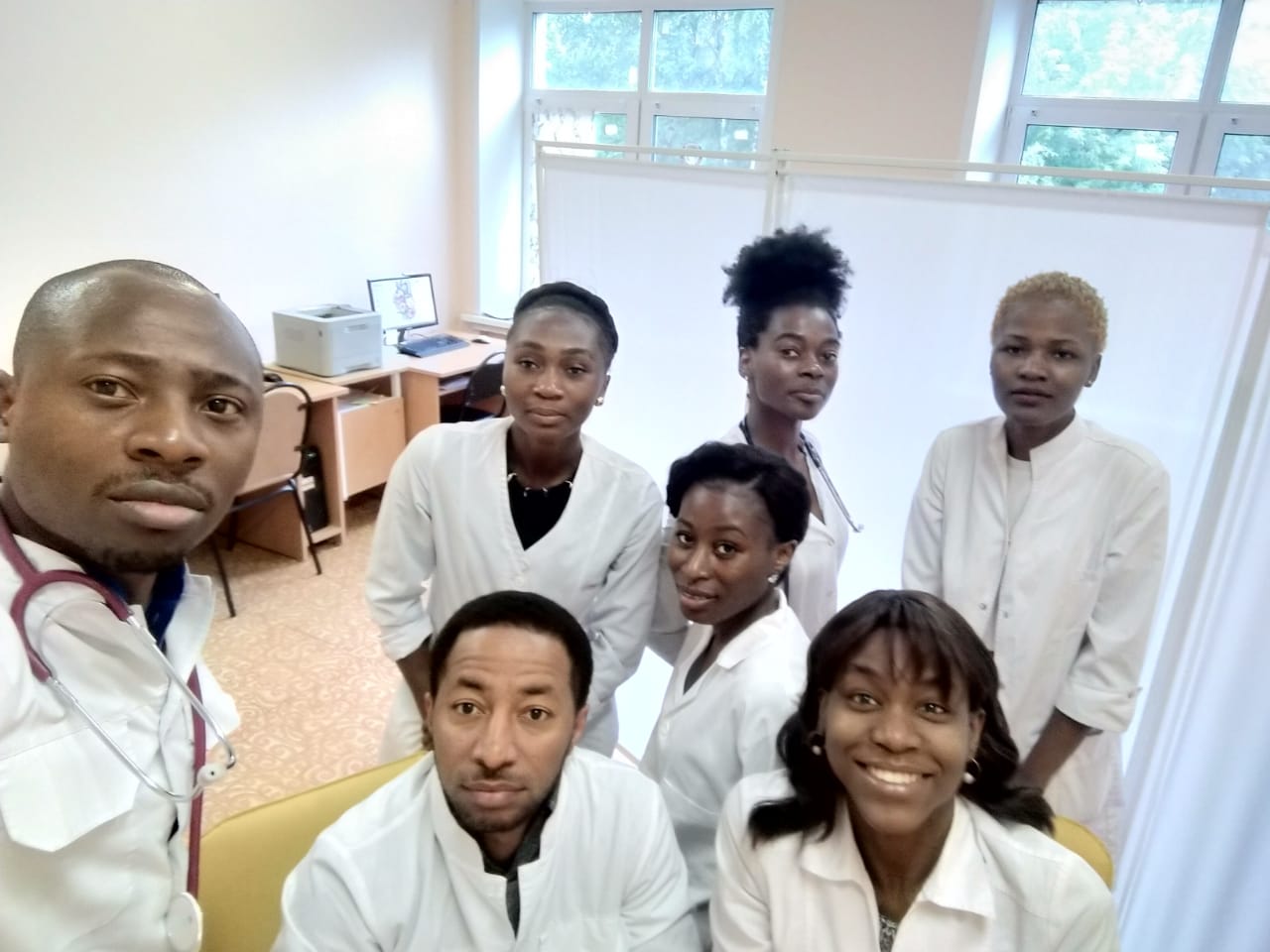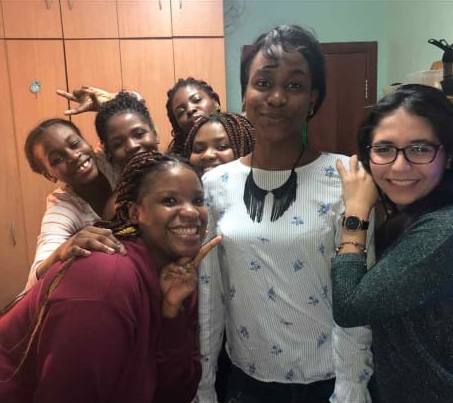"I dream about saving lives", student Tom-Ayegunle Kehinde Oreoluwa
.jpg) What did you feel, when you started studying medicine?
What did you feel, when you started studying medicine?
To be honest, when I started off, I didn’t like it. Not because I didn’t find it interesting, I just don’t like physics and maths. But the thought, that it will help other people made me get through it.
Why did you decide to have excellent marks?
It starts with a background. I went to a military school. It trains you to be agile, competitive… to be a survivor. Nigeria is the highest by popularity in our continent, so you have to work and survive among others.
When I came to university, funny enough – I failed my anatomy class for 3 or 4 times. I met other Nigerians, and they were very nice to me. When I failed my last attempt, they found me crying in the corridor. I told them the reason, they went to the teacher with me. The teacher let me go with 3 (E). My Nigerian friends proposed to help me learn the material. I found out, that they were very good students and worked for a diploma with honors. So I decided to have one too – If they can do it, I can do it as well.
How to succeed in university?
I make a plan – not less than 10 hours of studies every day. Well, I know from school, that I have to do my assignments once I get home immediately. During the break I walk and take some food – borsch, for example – I love Russian soups. Study more, talk to my family and sleep. Once I wake up I make tea and study again – around an hour before class.
Have you decided what kind of doctor you want to become?
Yes. I am thinking of becoming a pediatric cardio surgeon.
I looked around and found out that are not many specialists in pediatric cardiology. In Nigeria, the country I am from, we have more general pediatricians. Specialists are very rare.
Also, kids are very delicate. Their health requires a lot of attention. That is sad, that some kids have to travel to another country to get a surgery. This is not comfortable for both children and parents.
What is the difference between adult and kids surgeon?
There is a big difference. Most adults’ organisms are formed and not flexible. But with kids – this is a stage of formation. So you have more opportunity to make corrections. We have different types of surgeries – to cure and to support life. With kids you have a good chance of complete cure.
What are other medical courses you are interested in and why?
I want to take up pharmaceutical science. I feel like this is especially good not only for my country, but also around the world. There are a lot of medicines, which are not necessary. I think, companies should reduce the amount of unnecessary drugs in order to make people pay less money.
Also – diagnostic medicine. There is a wide access to CT, MRI, X-ray in developed countries…. But in developing countries – there is not. This is what I like in medical school – they teach you how to minimize things. Can you actually think of how you can go around diagnosing diseases without using CT or MRI.
What remedy or method would you like to bring to your country? Maybe, you want to invent something?
I am thinking a lot about diagnostic medicine We want to collaborate with the government to have a kind of insurance. There should be different health care plans for middle class and for the poor. The latter should have access to basic diagnostics, like X-ray, ultrasound and biochemistry blood count – three basic instruments of diagnostics, which we all need. For example – you’ve paid for a month, so you can have an ultrasound check, a biochemistry blood count, so you don’t have to pay each time – its subsidized.
Tell me more about your research.
I do research on people with kidney and heart problems, based on people from Nigeria. Based on what I’ve seen, in 10 years the death rate of young people will be very high in comparison with previous years.
A lot of young people (less than 25 years old) now are suffering from kidney problems. For my people – infection diseases are increasing the risk. It can be anything – water, air, contact…
With older people, the diseases are usually chronic. With young people, it can be extremely rapid (1-5 years) and very hard to cure because of antibiotic resistance for acute failure on background of infections. It usually ends with looking for a kidney transplant.
It is very important to find the problem and put a preventive measure earlier, so it is treatable. The reason why people don’t go to the doctor earlier is because of the money. That is why I am that passionate about the policy. I believe it will save a lot of lives.
Interviewed by Sofia Krylova

